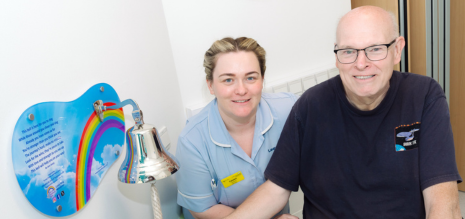MCSI Resettlement and Community Liaison Service
Following an injury or trauma to the spinal cord, it is important to be treated at a specialist centre so that all care and rehabilitation needs can be addressed by experienced professionals.
The Resettlement and Community Liaison Service at the MCSI is a patient centred service which has been in operation for over 40 years.
The liaison service is an integral part of the multidisciplinary team and consists of Resettlement and Community Liaison officers. They are professionals with specific knowledge of spinal cord injury and discharge planning.
Discharge planning commences on admission. Patients are allocated a Resettlement Officer who will support and facilitate the discharge process up to discharge and support them thereafter post discharge.
Other members of the team include the Resettlement Assistant and Generic Workers who are managed by the senior Resettlement and Community Liaison Officers.
The resettlement and community liaison service identifies care and equipment requirements and liaises with health and social services regarding how any needs will be met in the community, and who will fund the care package following discharge from hospital.
They work on the patient’s behalf and also coordinate appointments with the Department of Works and Pensions and liaise with housing services to assist with housing applications.
Discharge Planning
When the patient is ready, a Resettlement Officer and Occupational Therapist (ROOT) meeting is held with the allocated Resettlement Officer (RO), Occupational Therapist (OT), patient and family to discuss the discharge process and identify any issues.
If required, a discharge planning meeting will follow, with the attendees above and the community team to discuss and plan for:
- Short term discharge - To provide a safe venue for discharge with appropriate equipment and care.
- Long term aims - To enable the patient to be as independent as possible allowing them to live the lifestyle they choose.
The majority of patients return to their existing home initially in a camp–out situation 75% of spinally injury patients are discharged home.
The discharge date is determined by reaching rehabilitation goals set by the multi-disciplinary team.
